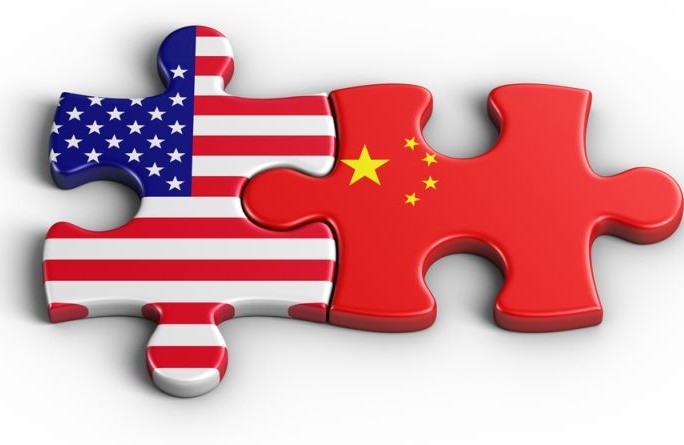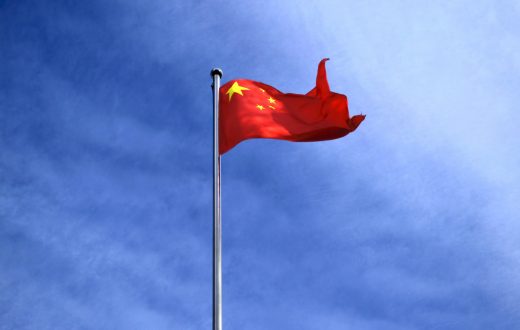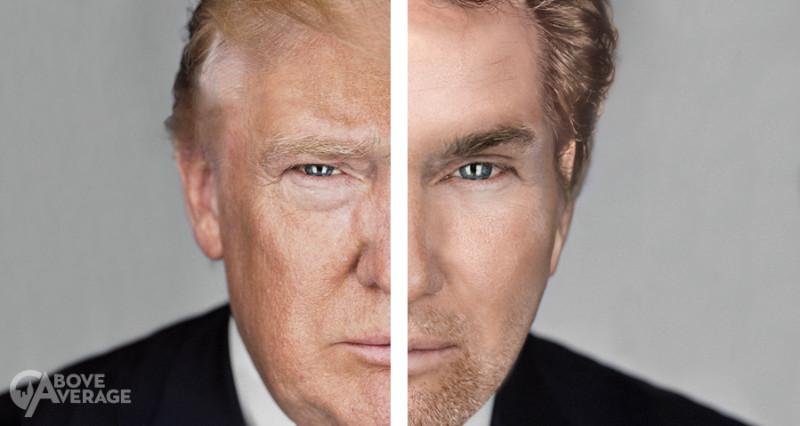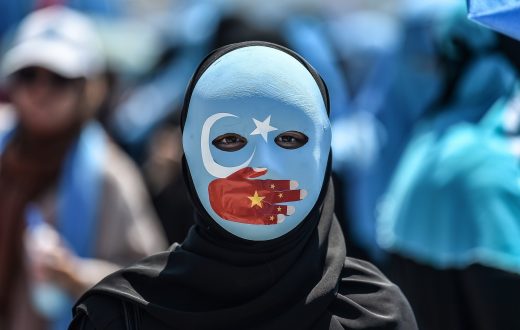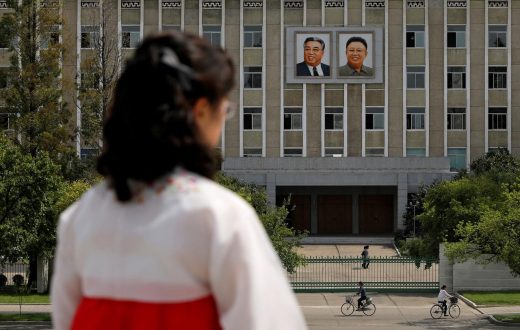Which relation between America and China in the Age of Trump?
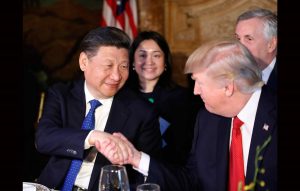
Impulsive, unpredictable and populist: these would be the three words to characterize Donald J. Trump. The populists always found common and external opponents to unify the population. If we analyze the current President’s positions, during his campaign and after his election, we can certainly say that China is an opponent, and a major one. And this antagonistic behaviour transforms really the relationship between the two countries, making them unpredictable. During the next four years, it will be an alternating of good and bad periods, and a crisis can suddenly start and to finish as quickly as it has begun.
According to an article from the New-York Times “Trump Injects High Risk Into Relations With China”[i]. Economically speaking, China is really outperforming United States, and the man who wants “Make America Great Again” (his campaign slogan), will have to accept that fact. But he will fight it as long as he can, by all possible means. He proved his tenacity during the campaign but that is a problem, because to succeed, he will play with fire. And China should be ready to do the distinction between provocations and real decisions.
We didn’t need to wait for a long time before the first act from M. Trump in that way. The call between him and the Taiwan President on December the 2nd was the beginning of these tempestuous relations. The protests from China government just irritated even more the future occupant of the White House. On December, the 11th, in an interview for Fox News, he outbids saying that he doesn’t think America had “to be bound by a One-China policy”[ii]. This calling into question the most important international principle for China for 40 years is a clear and strong message from Trump. He wouldn’t hesitate to override the rules, even if it should angry his most important economic partner and rival.
But three days later, D. Trump poured oil on troubled waters. The nomination of Terry Branstad as the next Ambassador in China was a good new for the two countries. The man has good relations with Xi Jiping and they know each other since 1979. His links with the current President of China are a guarantee of stability and Beijing interpreted this nomination like an action in favor of good relation and a mean to end up the precedent controversy. He will have the difficult function to defuse useless controversies and to reassure the Chinese government, but he should represent Trump’s administration and he will have to make the American voice heard when necessary.
This type of events is exactly what is going to punctuate the relationship between the two countries during the next years. And the bones of contention are numerous from both side. The reaction with North Korea, the territory possessions in China Sea, the relations with Taiwan, the importations in United States… During just two months, from the real beginning of Trump’s mandate, there has already been problems with North Korea and in the China Sea.
With these last events, we leave the declaration side to enter in the action. These issues are a reminder of the importance of the “game of influence” between the two countries about the Asia-Pacific area. The investiture of Donald Trump was a new signal for many countries and they wait for his real position and determination in conflict. The military maneuvers from China rekindled tensions and were an attempt to test Donald Trump’s reaction: was he able to go into war at first provocation?
The Asia-Pacific area is the main region where the interests of the two powers are in confrontations and many of local conflicts are a part of the global competition between the two countries. Indeed, the actors in this region are numerous and they all influence the daily international politic of each administration. If the majority of them are rational and don’t play with security issue, North Korea plays an unclear game which affects both China and United States.
After the Kim Jong Un’s provocations, Rex Tillerson, The Secretary of State, mentions a potential military response and called China to be stronger with North Korea. Theses provocations cause the accelerated deployment of the THAAD system (Terminal High Altitude Area Defense) to protect South Korea. But China considers this system like a threat for its own security and calls to its cancellation. In fact, this system is a double answer from Washington: an answer to North Korea but also to China. US administration is concerned by the growth of military presence in the China Sea and they consider that China is too comprehensive with North Korea and has helped to develop the Nuclear Program.
If this position is the one of many American diplomats, no one would say it publicly. The risk to trigger a crisis is too strong. But Donald Trump, still unpredictable, said on his own Twitter: “North Korea is behaving very badly. They have been “playing” the United States for years. China has done little to help!”[iii] (17th of March, 6.07am). This is another parameter to take into consideration. Via all the social medias, D. Trump can directly address to the world without a pre-filter from his staff. In terms of national policy, it’s not a real problem for the US, but when it’s about international relations, the scope of each word is very important.
This should annoy China a little more, while it tries to play appeasement and maintain good relations. We should not forget that a relation works in two ways, China’s reactions are as important as Trump’s provocations. Xi Jinping is aware that the two countries need a stable relation, the economic issues are too important for each other. He shall preserve China interests in United States but also in the rest of the world. And the protectionism promoted by Trump is a perfect occasion for China.
US pulled out from TPP (Trans-Pacific Partnership), it was one of the first Trump’s decisions. Without the presence of one big economic power, the TPP isn’t as good as before. To compensate, many countries want to integrate China; except Japan, who is strongly opposed to this decision. China’s integration will be an opportunity for the country to consolidate his economic hold on the area at the expense of United States. And for that, China emphasizes the integration in TPP or the development of the RCEP (Regional Comprehensive Economic Partnership). Xi Jinping has already started to publicly speak of a reactivation of this project.
In fact, China isn’t able to compete with military power of United States – one old aircraft carrier from USSR for China against two or three for United States just in Pacific area. But the economic leadership is an answer to offset the military supremacy and the politics against Chinese investments. It’s one of the big campaign argument of Trump: protect the American industry against China and rebalance the exchanges between the two countries. If Chinese administration is ready to move towards Americans, a strong protectionism wouldn’t be acceptable to them.
The Chinese vision about Trump and the protectionism is very bad and they don’t understand what is Mr. Trump’s final objective. According to Beijing Review, a Chinese paper, the Prime Minister Mr. Li, said “trade and investment between China and the United States created 1 million jobs in the United States in 2016” and “Chinese manufacturers’ profit margins can be as low as 2-3 percent, while 90 percent of profits go to American partners”[iv]. For them, the current relations and exchanges give more to the US than they cost to them.
But faced to the determination and the populism of Mr. Trump, they want to protect themselves, growing up their influence on the Asia Pacific Area. China is politically maneuvering to show to US administration that a good relationship between the two countries is better for everybody. The upcoming visits of Mr. Tillerson in Asia in March and Mr. Jinping in Florida in April are an occasion to take a better begin in the relation between the two administrations than expected.
To conclude, we can say that if the relations between the two countries are submitted to the character of Donald Trump and its particular vision of China, we won’t forget the role of other actors (North Korea, Japan, South Korea, Taiwan, etc.) who strongly influence the position of the two countries. At last, China is aware of the instability provoked by Donald Trump. It plays appeasement as much as possible while defending its own interests. It tries to take advantage of the situation to find a new balance between the two most important economic powers in the world.
[i] J. Perlez and C. Bucklayjan, “Trump Injects High Risk Into Relations With China”, The New York Times, 24 January 207, https://www.nytimes.com/2017/01/24/world/asia/trump-us-china-trade-trans-pacific-partnership.html?_r=0 (accessed 8 March 2017)
[ii] M. Gajanan, “Read Donald Trump’s Fox News Interview on Russia, Climate Change and His Company’s Future”, Time, 12 December 2016, http://time.com/4597416/transcript-donald-trump-fox-interview/, (accessed 15 March 2017)
[iii] D. Trump, 17 March 2017, https://twitter.com/realDonaldTrump/status/842724011234791424, (accessed 18 March 2017)
[iv] Y. Lintao, “Premier Optimistic about China-U.S. Relations”, Beijing Rewiew, 15 March 2017 http://www.bjreview.com/Nation/201703/t20170315_800091374.html (accessed 17 March 2017)
Reference List
Appelbaumdec, B., “Terry Branstad, Iowa Governor, Is Trump’s Pick as China Ambassador”, The New York Times, 7 December 2016, https://www.nytimes.com/2016/12/07/us/politics/terry-branstad-china-ambassador-trump.html, (accessed 10 March 2017)
“China-U.S. Relations: Beijing Review’s Perspective”, Beijing Review, 2 March 2017, http://www.bjreview.com/World/201702/t20170227_800088442.html, (accessed 11 March 2017)
Huanxin, Z., “US Secretary of State to visit China on March 18”, China Daily, 8 March 2017, http://usa.chinadaily.com.cn/world/2017-03/08/content_28470588.htm, (accessed 12 March 2017)
Shuiyu, J., ‘Continued bilateral trade benefits China and US: Minister’, China Daily, 11 March 2017, http://www.chinadaily.com.cn/china/2017twosession/2017-03/11/content_28519919.htm, (accessed 12 March 2017)
Smith, D., “Trump withdraws from Trans-Pacific Partnership amid flurry of orders”, The Guardian, 24 January 2017, https://www.theguardian.com/us-news/2017/jan/23/donald-trump-first-orders-trans-pacific-partnership-tpp, (accessed 9 March 2017)
Turnbull, M., “Australia open to China and Indonesia joining TPP after US pulls out” The Guardian, 24 January 2017, https://www.theguardian.com/australia-news/2017/jan/24/australia-open-to-china-and-indonesia-joining-tpp-after-us-pulls-out, (accessed 11 March 2017)
Wertime D. and Stone I., “The Chinese Learned that Trump Blinks”, Foreign Policy, 10 February 2017, http://foreignpolicy.com/2017/02/10/is-donald-trump-a-paper-tiger-to-beijing-xi-jinping-call-one-china-policy/, (accessed 10 March 2017)
Xinhua, “China again urges ROK to stop THAAD deployment”, China Daily, 11 March 2017, http://www.chinadaily.com.cn/world/2017-03/11/content_28515741.htm, (accessed 12 March 2017)

